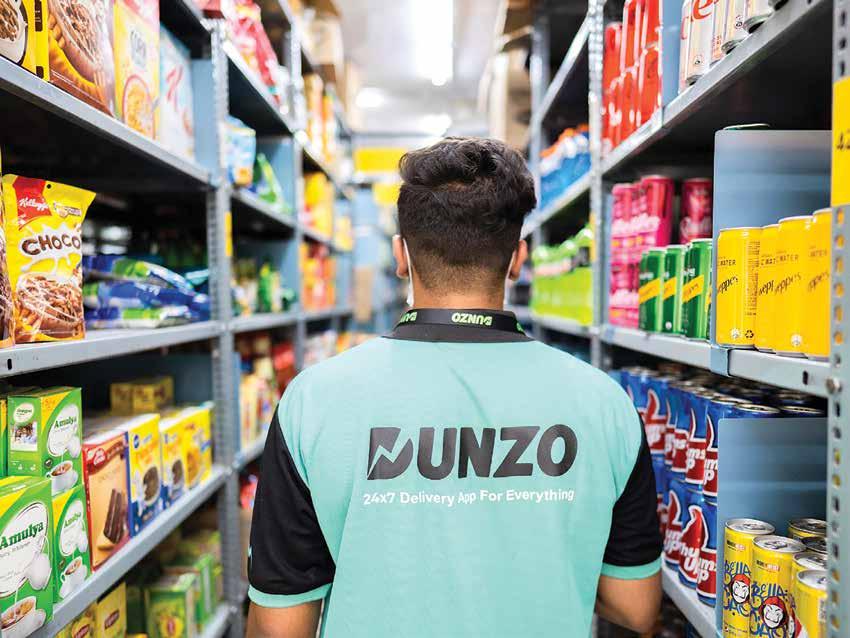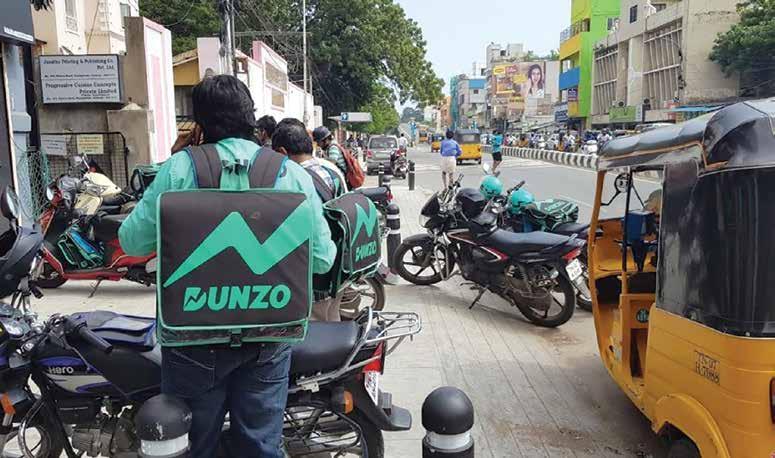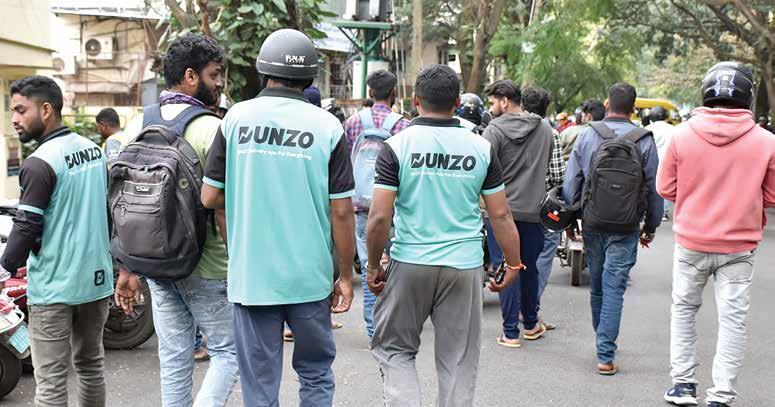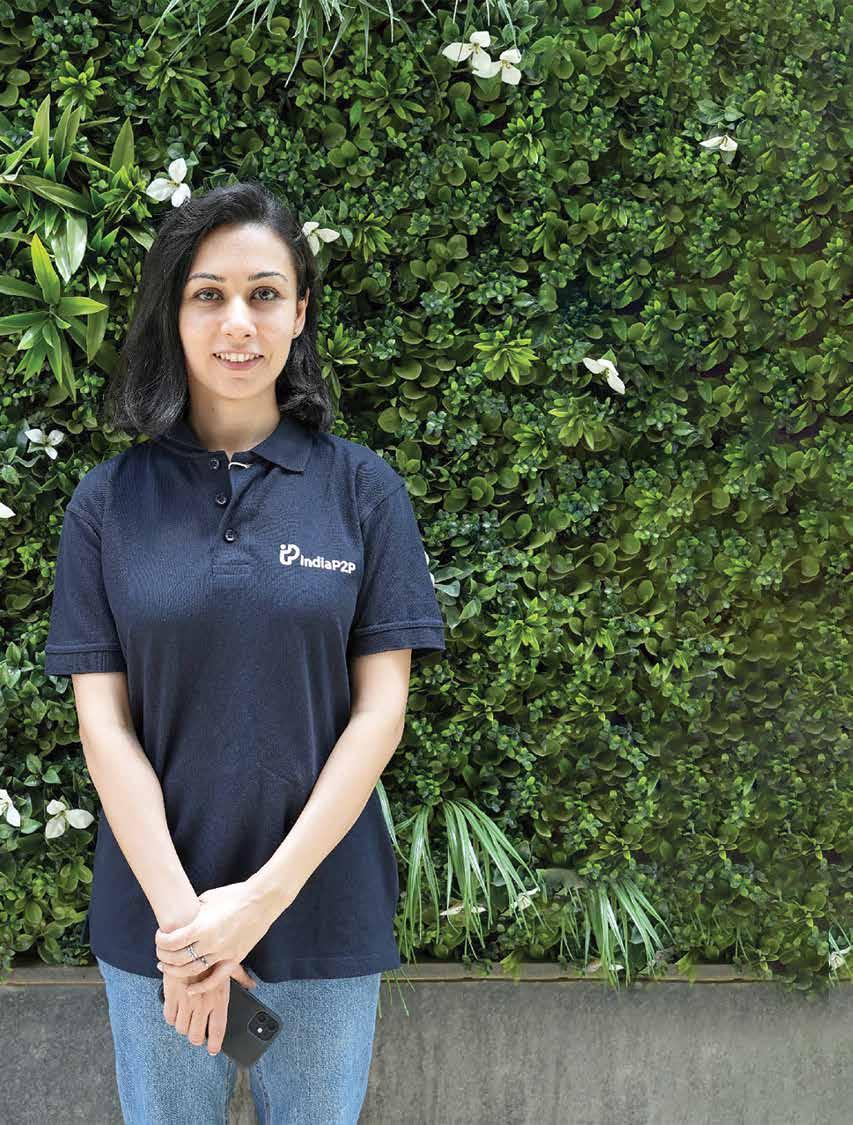
6 minute read
The Dunzo Dilemma
from January 2024
What is really happening with Dunzo?
Ansh Singh
Advertisement
India has the world's third-largest startup ecosystem, with a thriving community of new and aspiring companies emerging regularly. In this vibrant landscape, a multitude of startups has sprouted, each with its unique vision and aspirations. Among them, a select few have not only achieved unicorn status but have also become industry giants, Startups like Zomato, Flipkart, and Paytm, which have navigated the competitive market with ingenuity and determination, ultimately establishing themselves as unicorns. These success stories serve as inspiring benchmarks for aspiring entrepreneurs within the Indian startup ecosystem.
However, the startup journey is not without its challenges, and some unicorns have faced setbacks that led to their unfortunate demise. Startups like RoomsTonite, InoVVorX and Jobridge, despite their initial promise, faced the harsh realities of the market and, unfortunately, succumbed to financial pressures.
Among these, Dunzo, a quickcommerce start-up founded in Bangalore in 2014, stood out as a promising disruptor in the logistics industry. However, despite its ambitious goals, Dunzo faced challenges that led to its cessation of operations in 2023.
Early Success:
Dunzo, founded by Kabir Biswas, Ankur Aggarwal, Dalveer Suri, and Mukund Jha, offered ondemand delivery services across multiple cities in India. Despite successfully raising over $200 million in funding and expanding its reach, the company encountered financial difficulties, resulting in its closure. Surprisingly, Dunzo not only struggled with financial losses but also faced operational hurdles, including substantial layoffs, delayed salary payments, and disputes over non-payments with Facebook.
Dunzo faced challenges leading to its failure, notably due to a lack of differentiation and innovation in its product and service offerings. While initially introducing a unique concept of delivering a wide array of items within the city, Dunzo eventually succumbed to becoming a commoditized service with numerous competitors replicating its model. The company failed to establish a robust moat or competitive advantage, leaving it vulnerable to competition and hindering the creation of a loyal customer base.
In 2016, Dunzo secured $1.8 million in a Series A funding round, with Bloom Ventures. This capital injection facilitated Dunzo's expansion from Bangalore to major Indian cities such as Delhi, Mumbai,
Pune, and Hyderabad. By 2018, Dunzo had amassed a total funding of $11 million and was accomplishing over 50,000 daily deliveries.

Through partnerships with numerous merchants, Dunzo diversified its delivery services, covering food, groceries, medicines, and various other goods. The appeal of Dunzo's swift delivery model, promising deliveries within 15-30 minutes, garnered significant user interest.
In 2020, Dunzo successfully raised $45 million in its Series D funding round, spearheaded by Reliance Industries. This boosted Dunzo's total funding to over $78 million. Reliance Industries recognized the considerable potential in Dunzo to fortify its new commerce initiative, JioMart. The intention was to leverage Dunzo's network for JioMart orders. However, Dunzo faced challenges in effectively utilizing this partnership and encountered delays in integrating into JioMart's system. conglomerate like Reliance, Dunzo
What went wrong?
Despite having the back of a major was unable to regain the users and orders it had lost. The company failed to effectively leverage the significant funding support it received.
Despite experiencing rapid growth, Dunzo's overreliance on discounts and promotions as a user acquisition strategy proved to be unsustainable. The company invested heavily in user discounts and incentives to outdo its competitors, depleting its funds rapidly without a clear path to profitability. In 2019, Dunzo attempted to pivot its business model by shifting away from offering concessions and instead focusing on establishing distribution partnerships with merchants. However, this strategic shift resulted in alienating many existing users who had initially signed up for the platform due to the availability of discounts. Subsequently, Dunzo witnessed a sharp decline in both orders and revenue, marking a significant strategic misstep.
Lacks the ability to Compete:
It became apparent last year that Dunzo, in its ambitious endeavor to establish itself as a rapid grocery delivery platform, faced challenges in competing with larger counterparts such as Swiggy's Instamart, Zomato's Blinkit, and Zepto. Consequently, the company started adjusting its business model, signaling that the economic viability of its 19-minute grocery delivery promise was not sustainable. An insight into mismanagement:

At the start of the year, internal deliberations took place regarding whether Dunzo should abandon its operations in other locations and focus solely on Bengaluru for potential success. Despite ongoing challenges, the company opted to address its issues while anticipating new capital, leading to an increase in accumulated debt. Looking back, this decision appears to be a fundamental issue. Dunzo has been exploring strategies such as offering free deliveries for higher order values and restructuring pricing for its pick-and-drop service, all in response to the current financial constraints. In these challenging circumstances, one can only hope that these experimental initiatives do not worsen the existing situation.
Data Breach Concerns:
In July 2020, Dunzo faced a data breach, revealing that unauthorized individuals had gained access to the company's website, compromising user data including email addresses. The extent of the information accessed remained unclear initially, but it was assured that payment details were not compromised. In response, Dunzo's technical team enhanced security measures and conducted an internal investigation. The inquiry determined that the unauthorized access may have originated from a breach in a third-party system.
Lack of Differentiation and Innovation:
Dunzo faced challenges leading to its failure, notably due to a lack of differentiation and innovation in its product and service offerings. While initially introducing a unique concept of delivering a wide array of items within the city, Dunzo eventually succumbed to becoming a commoditized service with numerous competitors replicating its model. The company failed to establish a robust moat or competitive advantage, leaving it vulnerable to competition and hindering the creation of a loyal customer base. In comparison to its rivals, Dunzo's delivery service did not offer distinct features, with competitors providing similar or superior options, including live tracking, diverse payment methods, customer support, and attractive discounts.
In April 2023, Dunzo implemented a 30 percent reduction in its workforce, impacting approximately 300 of its employees. Concerns among the workforce were exacerbated by salary delays and deferrals, underscoring the gravity of the company's financial difficulties. In an internal communication, Dunzo reassured employees that outstanding salaries for June and July would be disbursed on September 4, 2023, along with the August salary.

High Operational Costs and Low Margins:
The primary factor contributing to Dunzo's downfall is its business model characterized by high operational costs and narrow profit margins. The company heavily relies on a vast network of delivery partners, compensating them on a per-delivery basis. Consequently, Dunzo bears the expenses associated with fuel, maintenance, insurance, and incentives for these delivery partners, which can fluctuate based on factors like distance, traffic, and demand. Another significant issue is the lack of innovation and diversification in Dunzo's product and service offerings. The company's focus has been predominantly on delivering groceries, food, and medicines, constituting more than 80% of its orders, as reported by The Ken. However, these sectors are intensely competitive and yield low profit margins. Dunzo missed opportunities to explore and expand into other markets, such as delivering services, experiences, or digital products, which could have enhanced its value proposition and bolstered customer retention.
Financial Struggles:
At the conclusion of the fiscal year 2022, Dunzo recorded a doubling of losses, totaling Rs 464 crore, despite a rise in operational revenue to Rs 54.3 crore. In June 2022, the startup experienced an EBITDA loss exceeding Rs 176 crore, highlighting its financial struggles. The primary business, Dunzo Daily, encountered substantial financial pressure, with a loss of Rs 230 per delivered order in the first half of 2022. The company's challenging period was evident through restructuring initiatives, such as shutting down dark stores and implementing workforce layoffs.
In April 2023, Dunzo implemented a 30 percent reduction in its workforce, impacting approximately 300 of its employees. Concerns among the workforce were exacerbated by salary delays and deferrals, underscoring the gravity of the company's financial difficulties. In an internal communication, Dunzo reassured employees that outstanding salaries for June and July would be disbursed on September 4, 2023, along with the August salary.
Ansh Singh
IndiaP2P, led by entrepreneur Neha Juneja, is reshaping finance with a focus on stable, highyield investments. The platform uniquely empowers women borrowers, particularly in rural SMEs, with 96% of its borrowers being women. Backed by investment specialists, IndiaP2P cuts out the middleman, allowing direct investor contributions to loans. Neha, a seasoned entrepreneur, brings her success from co-founding Greenway and pioneering financial initiatives.
Founded by a team with a decade of experience in women-oriented businesses, microfinance, and fintech, IndiaP2P stands out for its commitment to unlocking credit for small and medium enterprises (SMEs), with a particular focus on women borrowers.










